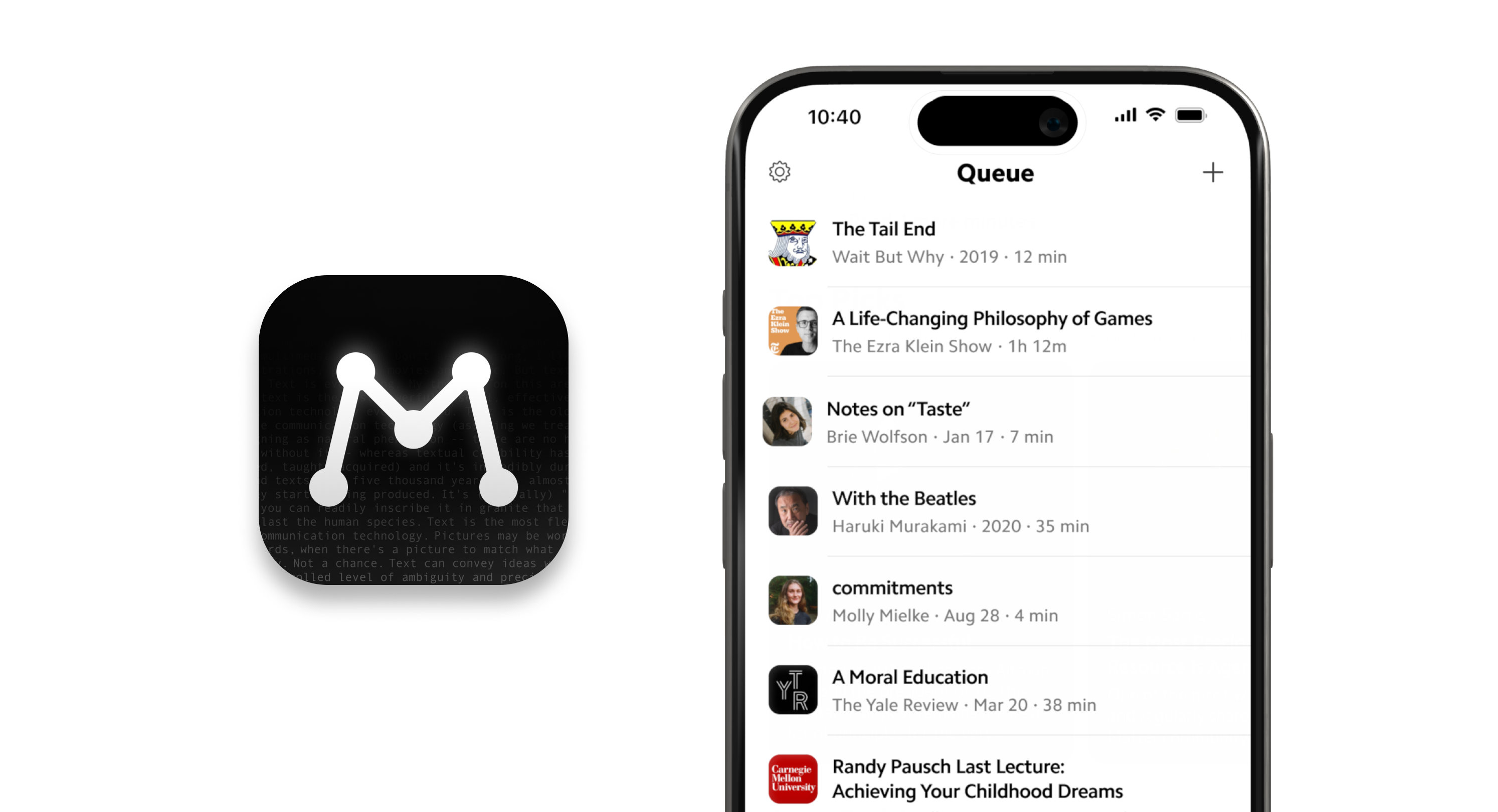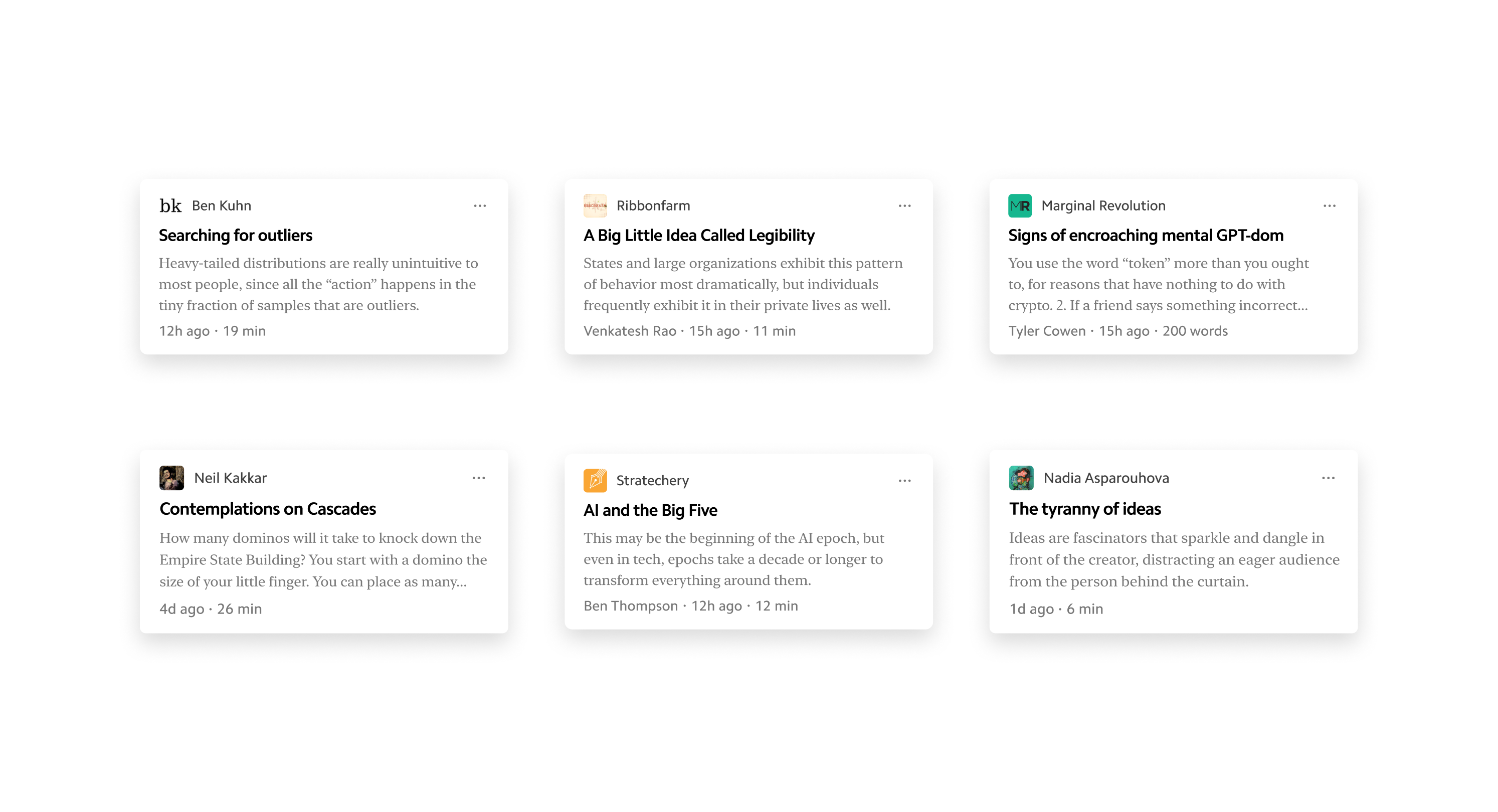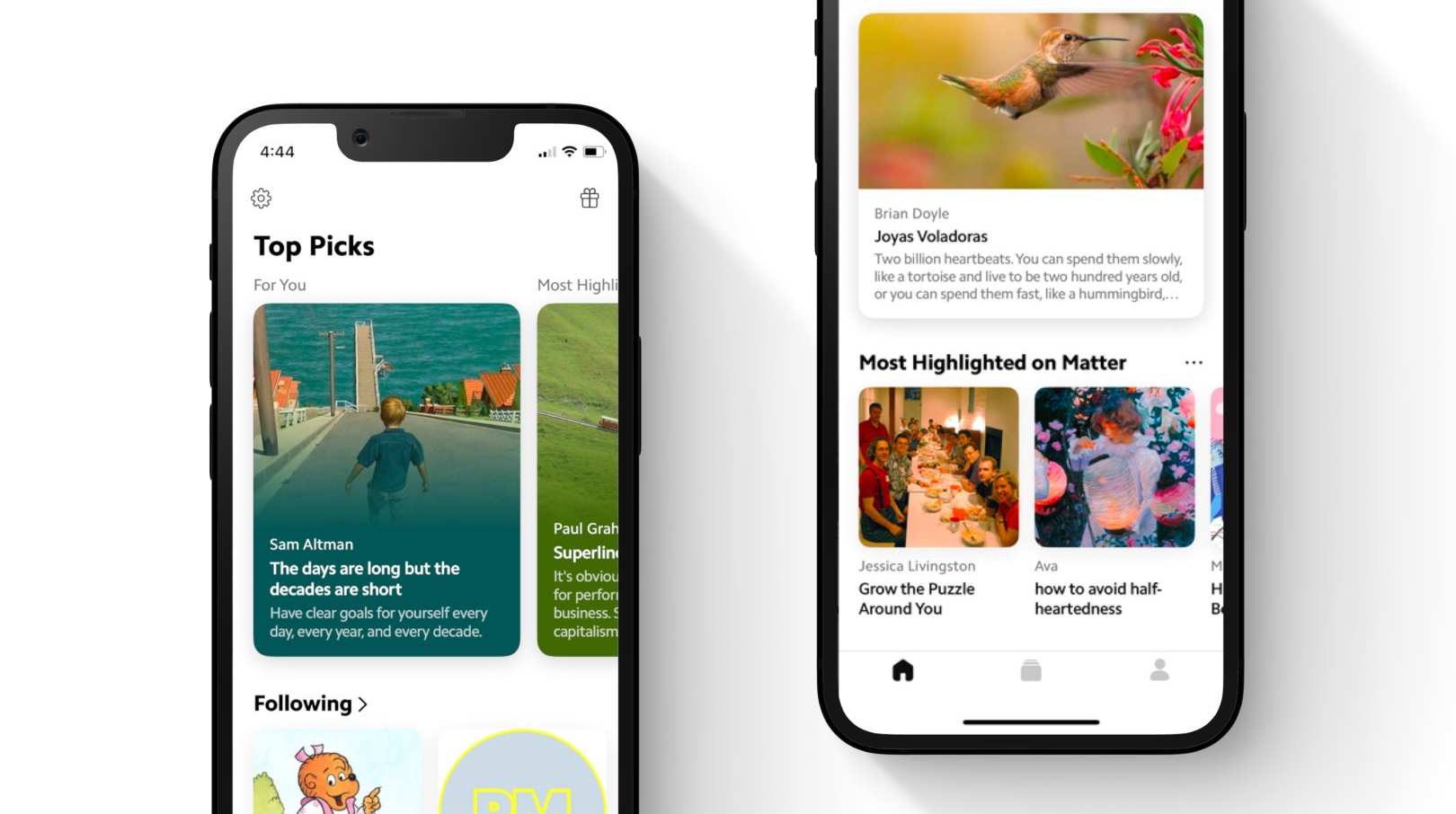Matter Curation
2024, Product Design
This is an overview. If you’d like to learn more, please reach out.
Context
Matter is a read-later tool that enables users to save any content — articles, podcasts, videos, PDFs — into a queue to consume later. We wanted users to discover even more interest-specific content based on what they were already reading in Matter, and curate high-quality articles accessible within the app.

Problem
The main barrier preventing users from paying for a subscription was that they didn’t know where to find content to save. We came to the conclusion that recommendations would need to be a top priority if we were to scale the product to a larger audience. The question was: how should we implement them?
Previously, saving an article was the only way to get content in Matter.
Opportunity
At Matter, we already extensively collected thought-provoking content, and we had a writer-in-residence who curated a weekly list of writing that indexed on depth and insightfulness. Leveraging OpenAI’s API, we could now identify common attributes among our curated content more accurately, and use these insights to uncover new hidden gems.

Home page
The first decision we made was to add a personalized home feed as a new tab. We curated collections of writing based on the ideas they contained, rather than broad genres. I collaborated with the team to design a home feed which displayed a mixture of our collections and algorithmic recommendations based on your reading habits.

More like this
Using a variety of attributes as guideposts, we also implemented a recommendation system that indexed for new content based on the qualities of previously read articles. You could access these recommendations at the bottom of each article.
Read Something Wonderful
We maintained various sites that collected the internet’s most thought-provoking pieces. These served both as tributes to the extraordinary ideas scattered across the web, as well as signposts guiding visitors towards Matter. Read Something Wonderful was one of these archives, where we sought out timeless writing.
Final thoughts
While the end goal is to automate recommendations — to algorithmically determine the most interesting piece to read at any moment — the truth is, curation begins as an intensely human process. All of our collections originally began as hand-picked lists that we learned to extrapolate from. But here’s the real question: is the internet’s quality actually declining, or do we just need better ways to discover what truly matters?
